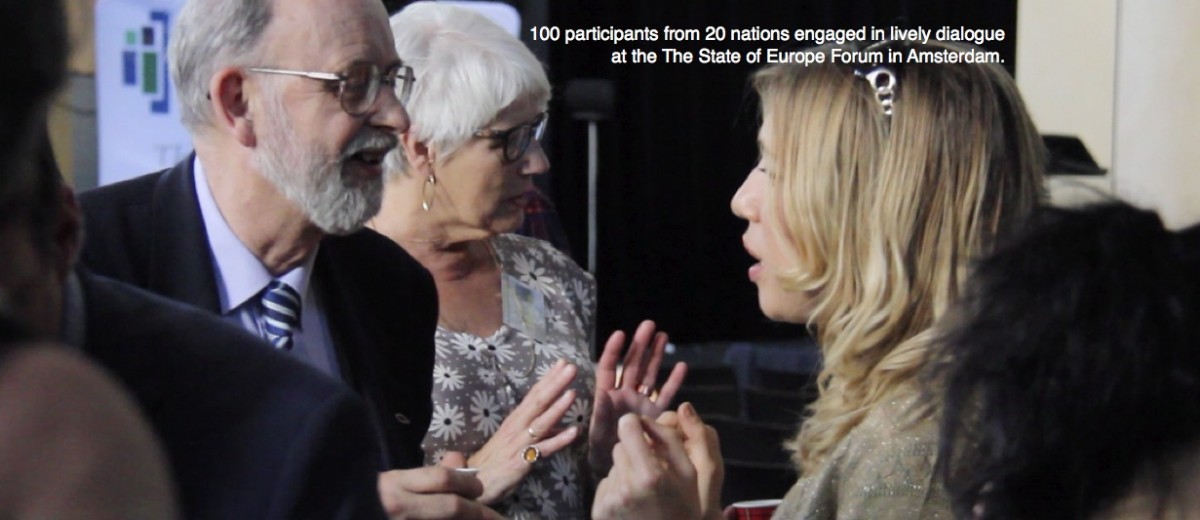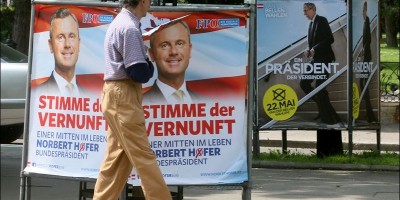Christians in Europe must rise above narrow horizons of national interest, seek the international common good and urge fellow citizens to do likewise, argued Dr Jonathan Chaplin last weekend at the State of Europe Forum in Amsterdam.
‘We reject the secularist liberal assumption of the primacy of individual self-interest in national politics,’ the Englishman declared, and the equivalent assumption in international politics–an attitude blocking a just resolution of the EU response to the refugee crisis.
Regretfully, in his view, the UK government was appealing to voters to say ‘yes’ to Europe ‘in the narrow, shrivelled language of the British national interest’.
‘Christians should be prepared to promote the international common good even at the apparent expense of their national interests,’ he continued, ‘as did the statesmen who launched the project of European integration with such courage and foresight.’
Speaking in the opening plenary on the eve of Europe Day, May 9, in the 400-year-old Zuiderkerk, Chaplin said that to understand and evaluate the EU, we needed first to ask the question: what is the EU for?
Europe Day commemorates the Schuman Declaration made on that date in 1950, which launched the European Coal and Steel Community and began what some call ‘the long peace’. The State of Europe Forum is held each year around this date in the capital of the country holding the presidency of the EU.
Servants of God
Robert Schuman and his colleagues understood very well that the project of European integration was political before it was economic, Chaplin explained. They knew it would fail if the political ends of the project ever came to be dominated by the economic means. Schuman said that European integration “cannot and must not remain an economic and technical enterprise; it needs a soul, the conscience of its historical affinities and of its responsibilities in the present and in the future, and a political will at the service of the same human ideal.”
The EU was primarily a political institution, Chaplin explained. Political institutions were not a necessary evil, as secular libertarians suggested. Nor were they the solution to all social problems, as secular social democrats sometimes implied. They were, as the apostle Paul said in Romans chapter 13, ‘servants of God for your good’.
‘In that short phrase, Paul both affirms the legitimacy of political institutions against those who see them as hopelessly corrupt, while also debunking the imperial claims of the pagan Roman state,’ he explained.
We see these purposes–public justice, peace, solidarity and freedom–at the level of our nation-states, he said, and at local and regional levels. We also however needed to see international and trans-national institutions as called to these noble tasks–the UN, the WTO, NATO, and, indeed, the EU–however poorly they sometimes performed them. Each had been established towards securing justice, peace, solidarity or freedom, but now in public space beyond the borders of any one nation state. That was their raison d’être, he explained, and the benchmark by which their performance should be critically assessed.
For universal norms of justice, peace, solidarity and freedom were God’s will for all humanity. Their claims did not stop at national borders. Governments also held responsibilities for citizens and nations elsewhere, especially those most at risk of injustice or loss of peace, solidarity or freedom.
Crucial part
Chaplin cited threats to the EU project today, including the rise of nationalistic and xenophobic movements, the global financial crisis, the Eurozone crisis and the prospect of a Grexit, terrorism, technological threats to human personhood, environmental degradation, the resurgence of Russian nationalism, the refugee crisis, the genuine possibility of a Brexit and a subsequent unravelling of the EU.
These crises demanded such a political institution as the EU ‘with a necessary, honourable and demanding moral vocation: to promote conditions of justice, peace, solidarity and freedom across European public space’. To this end Christians should engage as European citizens, with the risky, faltering, dysfunctional but necessary and visionary project that was the European Union, concluded Chaplin, who directs the Kirby Laing Institute for Christian Ethics in Cambridge.
Later in the forum, Chaplin cautioned against expecting the EU to promote every European good or fix every social problem. Much responsibility belonged to other agencies: individual citizens, families and organisations of civil society. Neither could the EU officially represent or promote any one faith, even Christianity.
The struggle for the soul of the EU–or rather the struggle among the plural souls resident in the public spaces of the EU–was not something that the EU itself as a political institution could take the lead in. This task fell rather to European civil society, in which Europe’s faith communities played a crucial part.
Christians nevertheless should put their heart and soul into the EU, he said, contributing their insights on the God-given task of the EU in the public realm.
Till next week,



